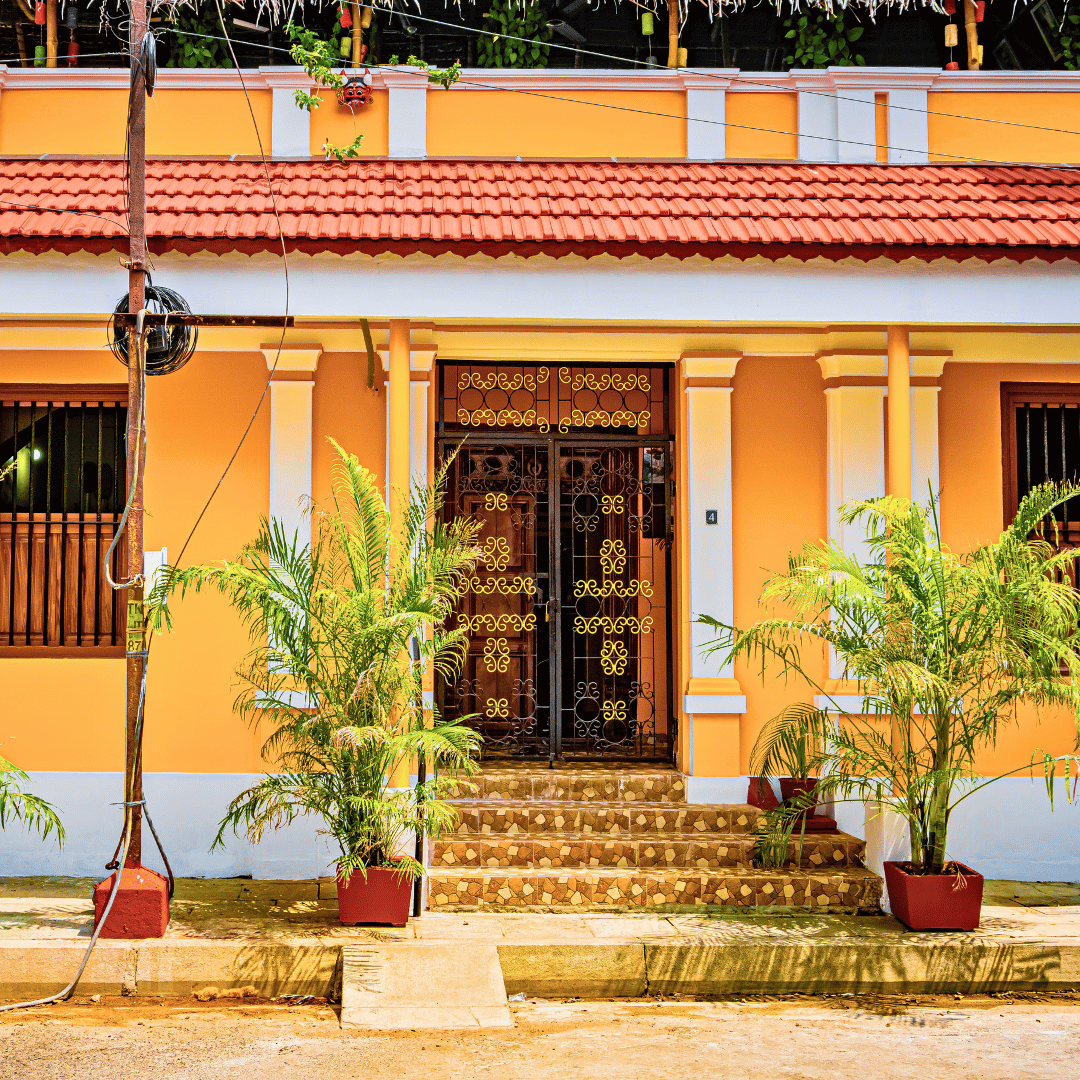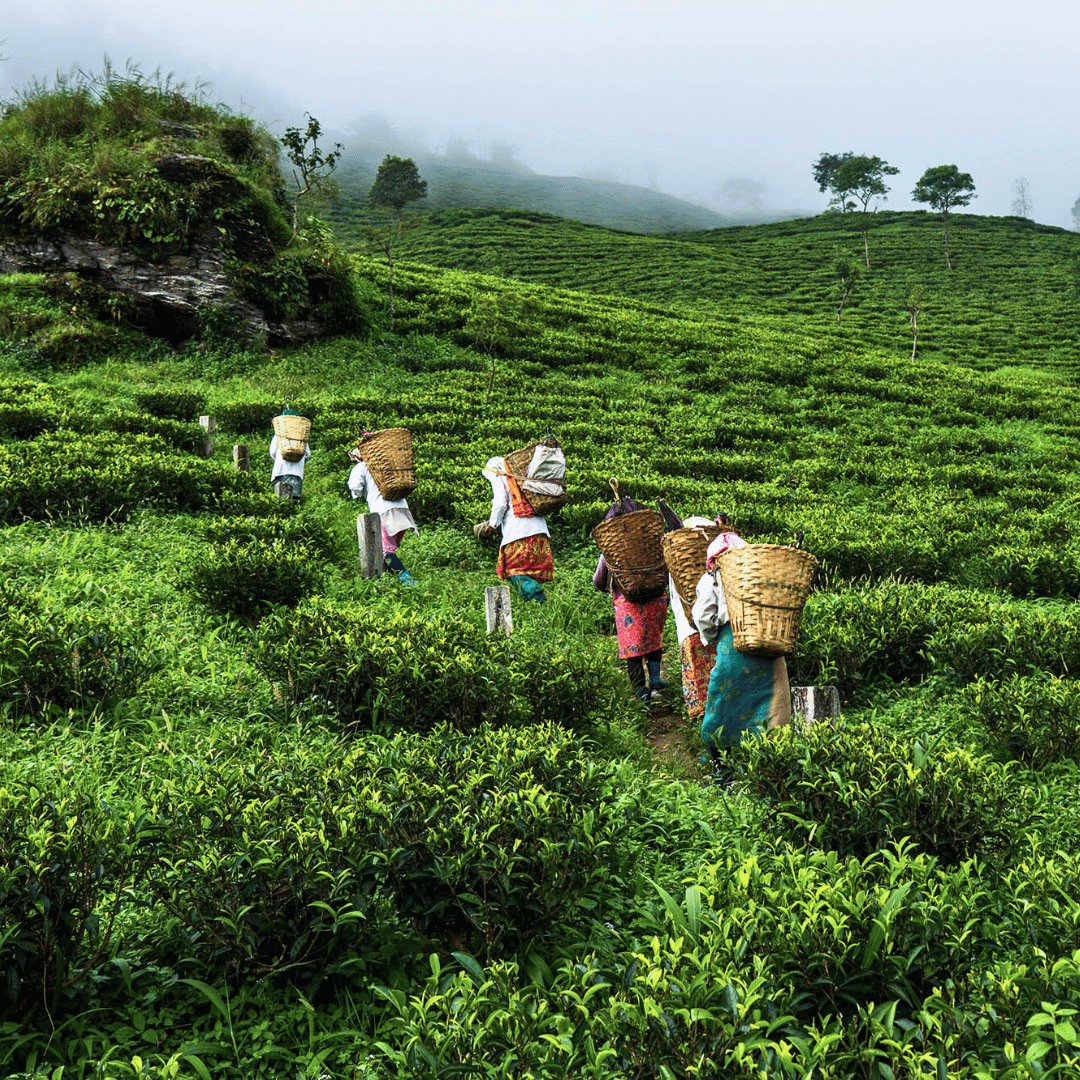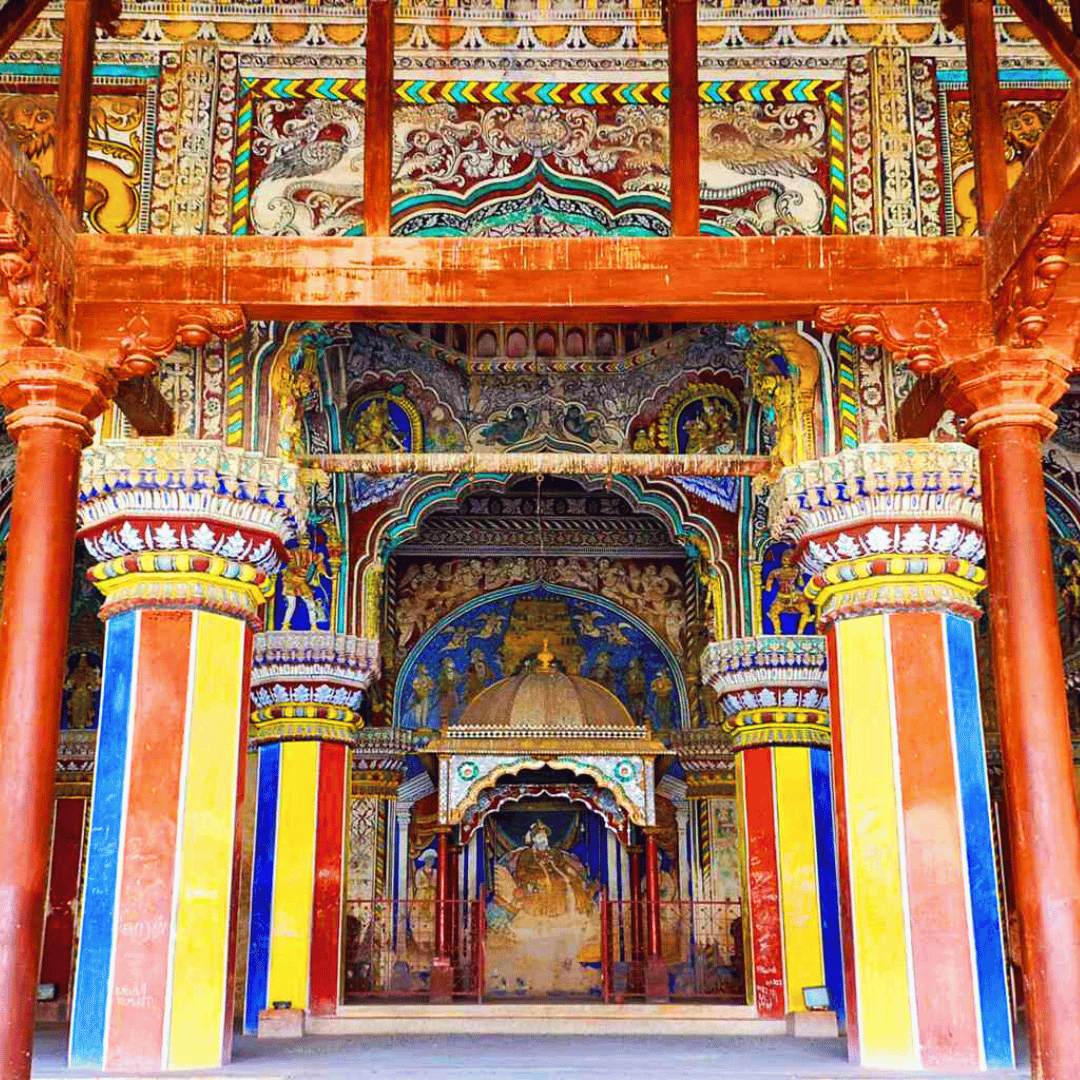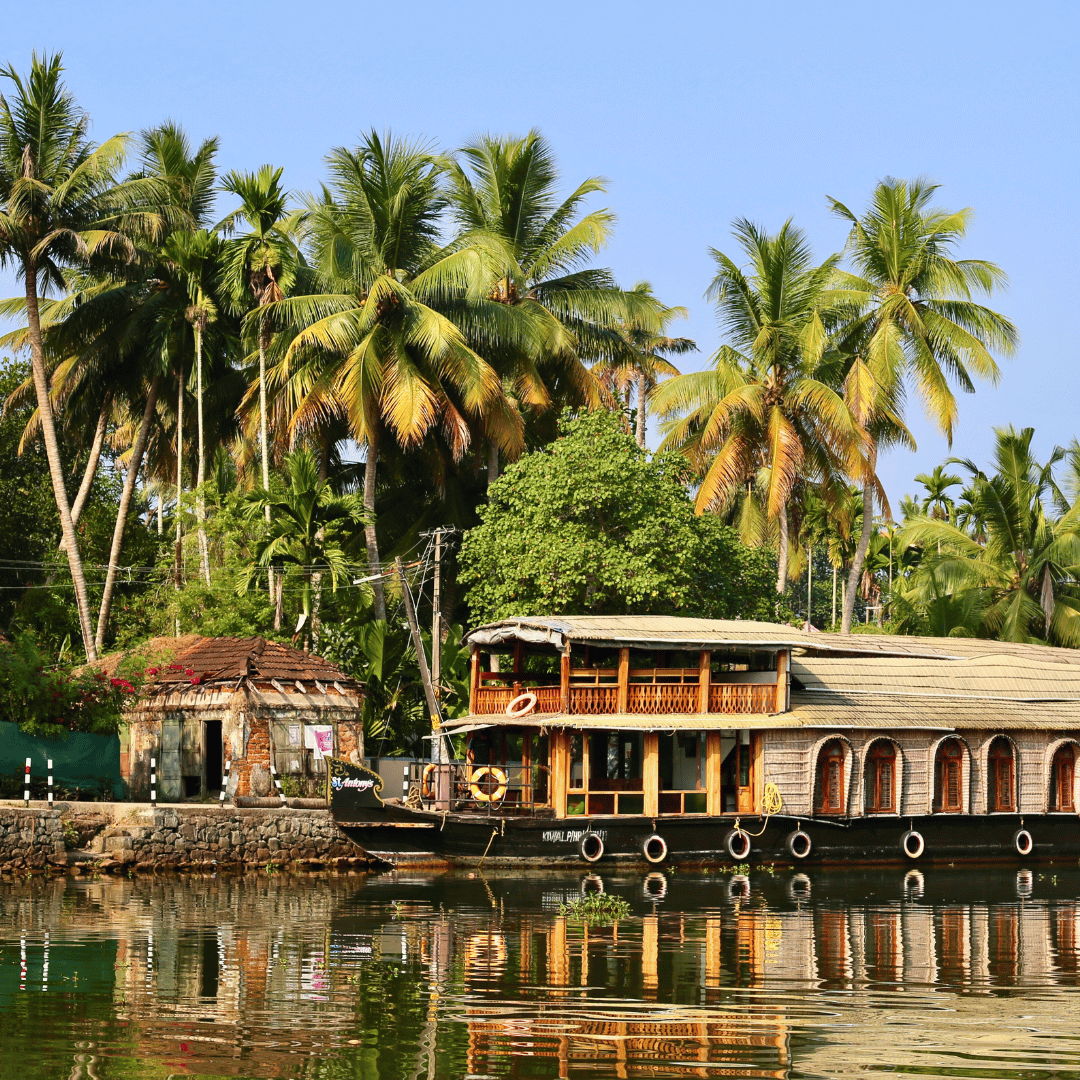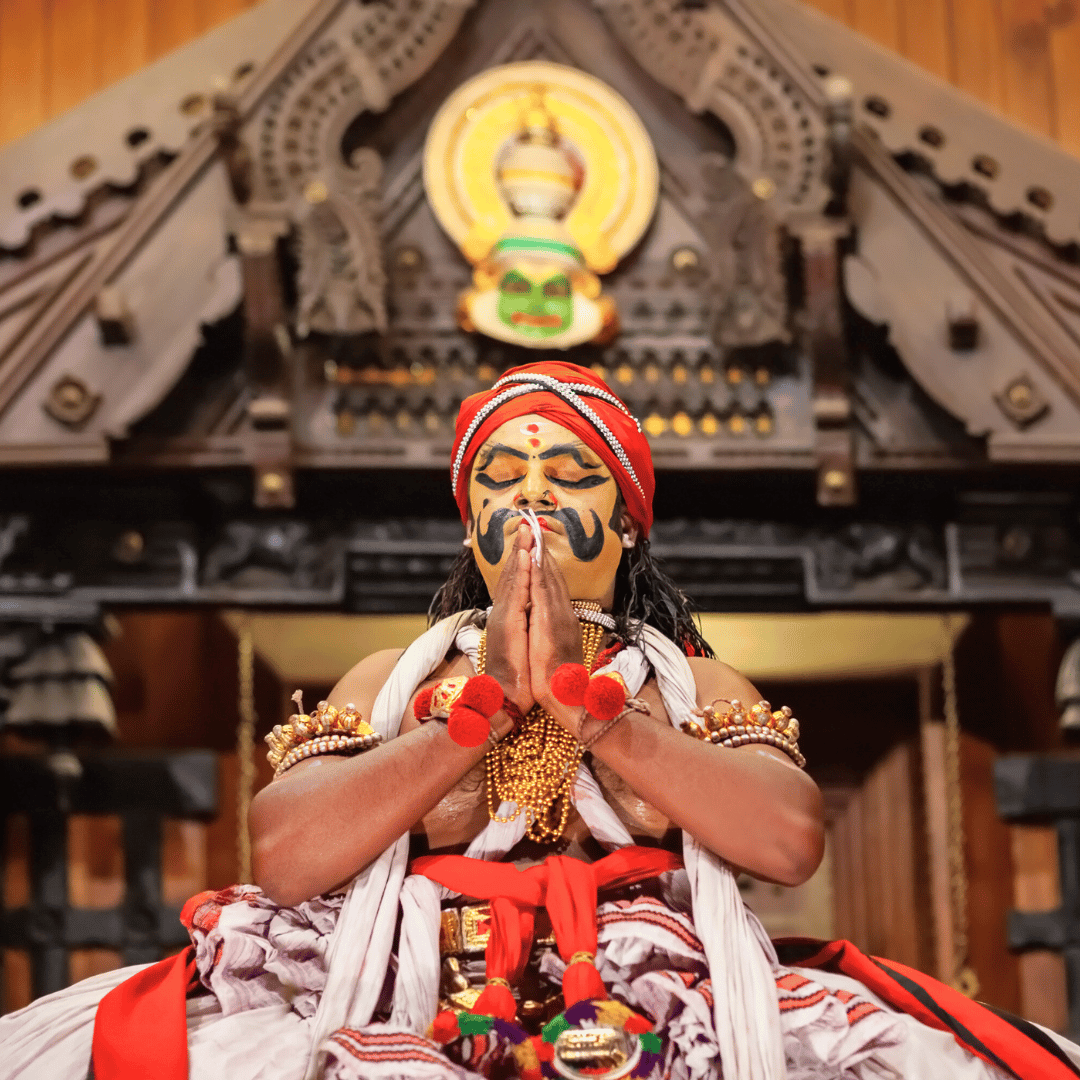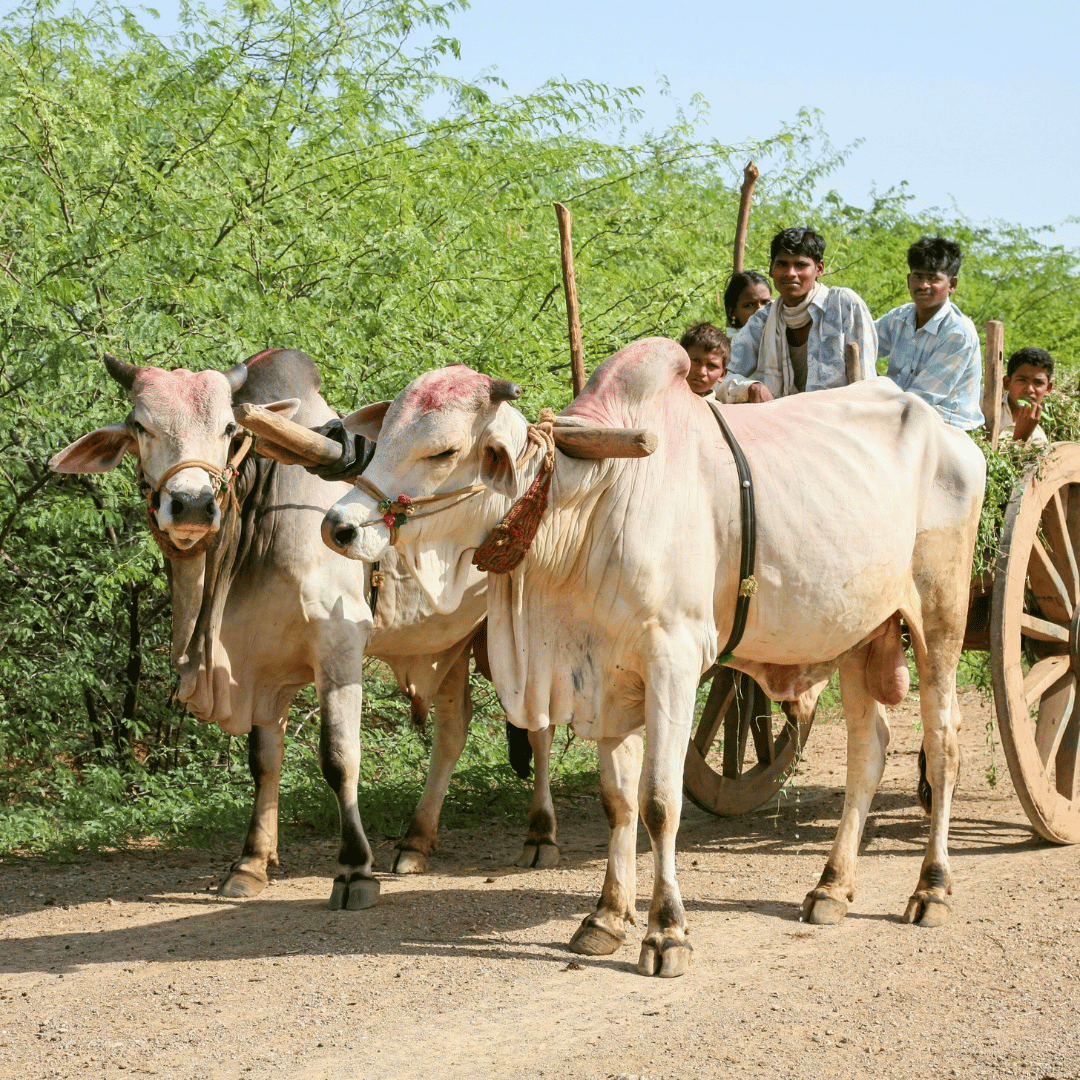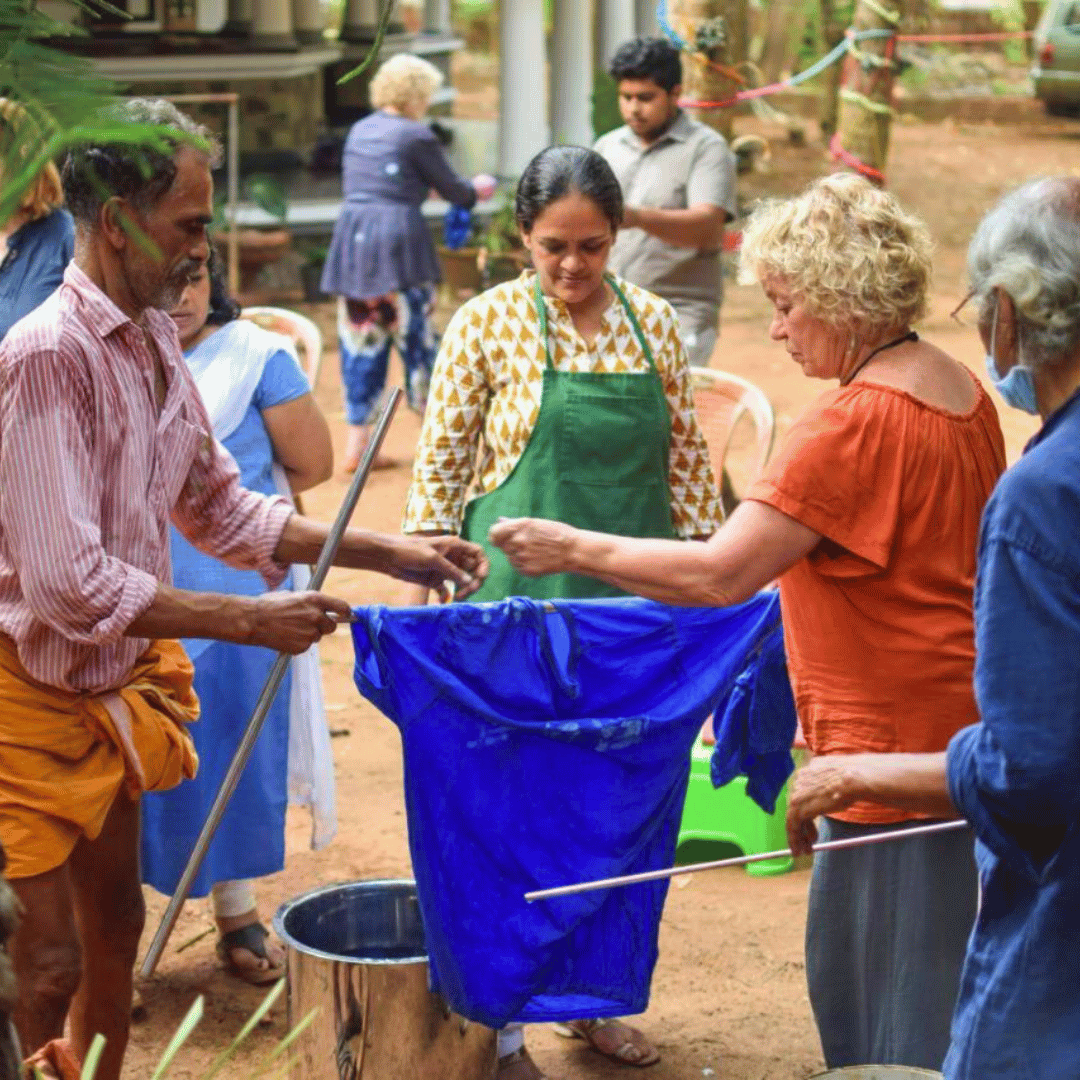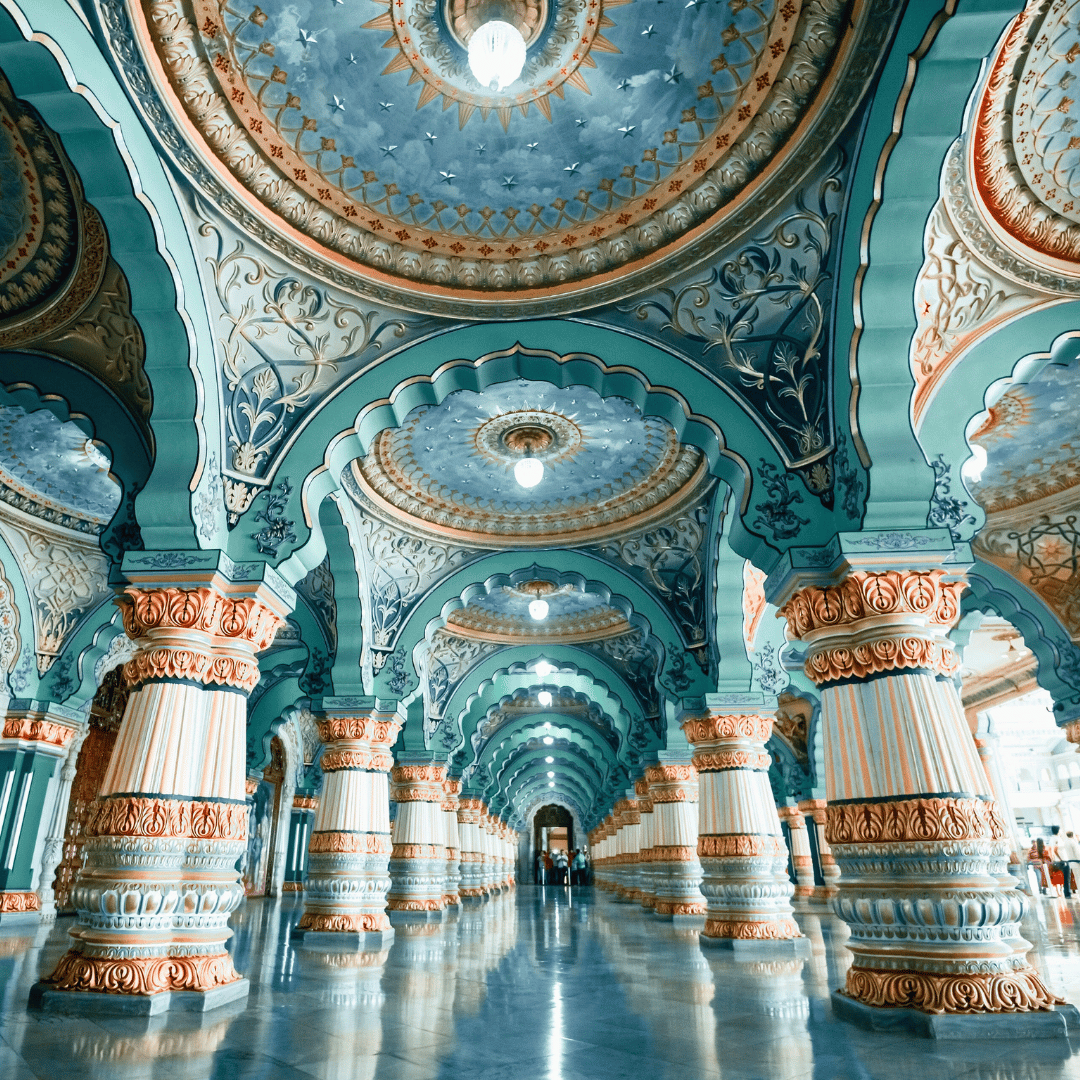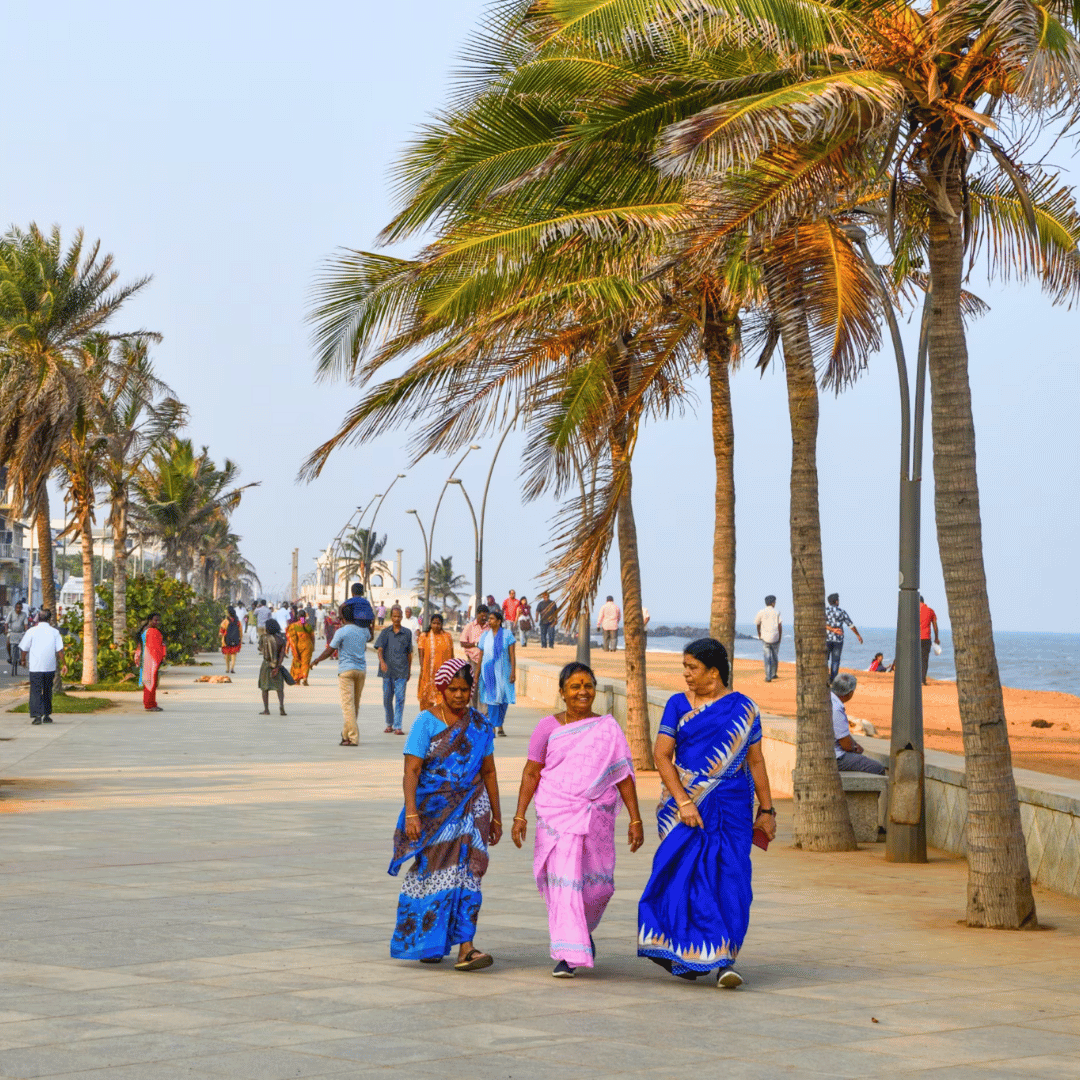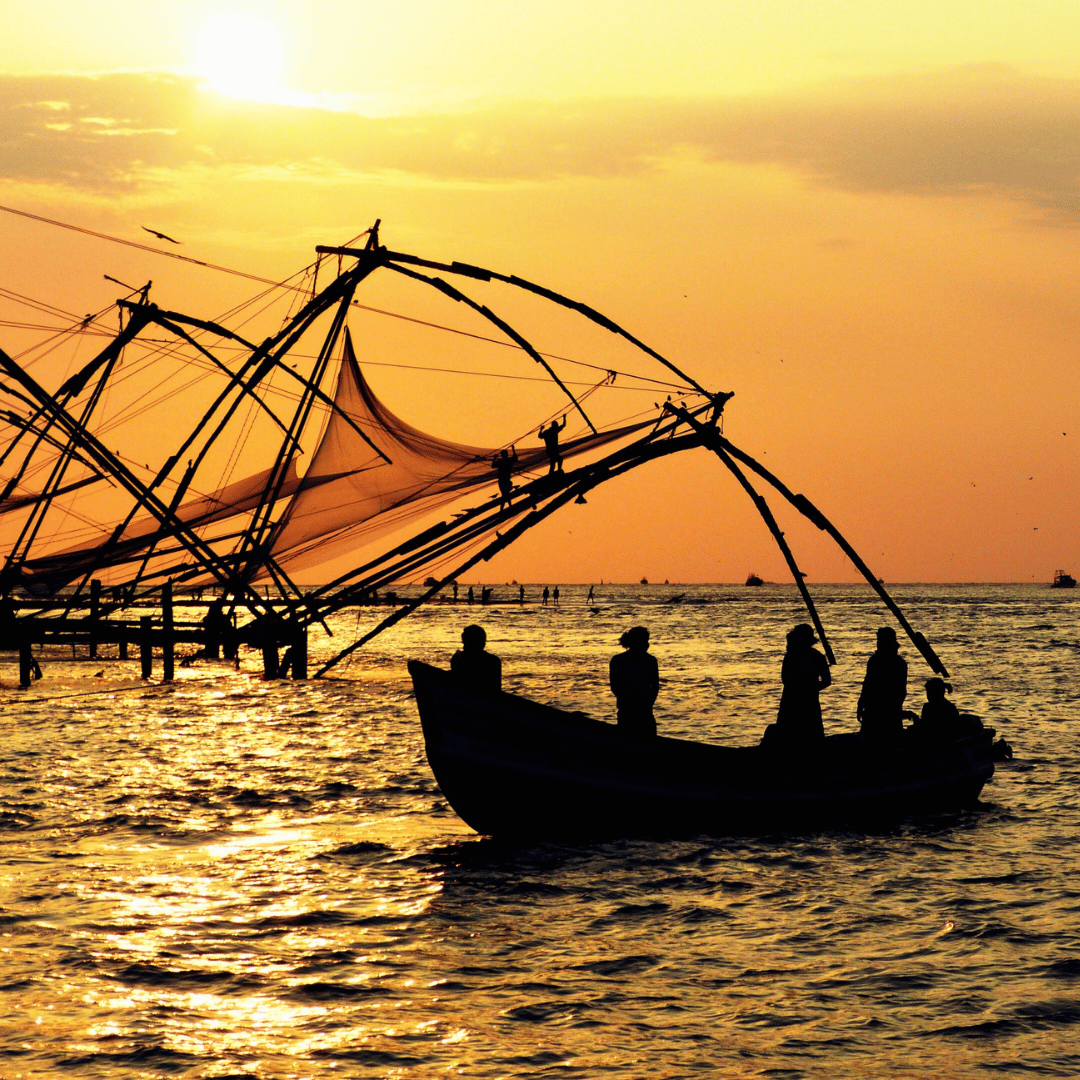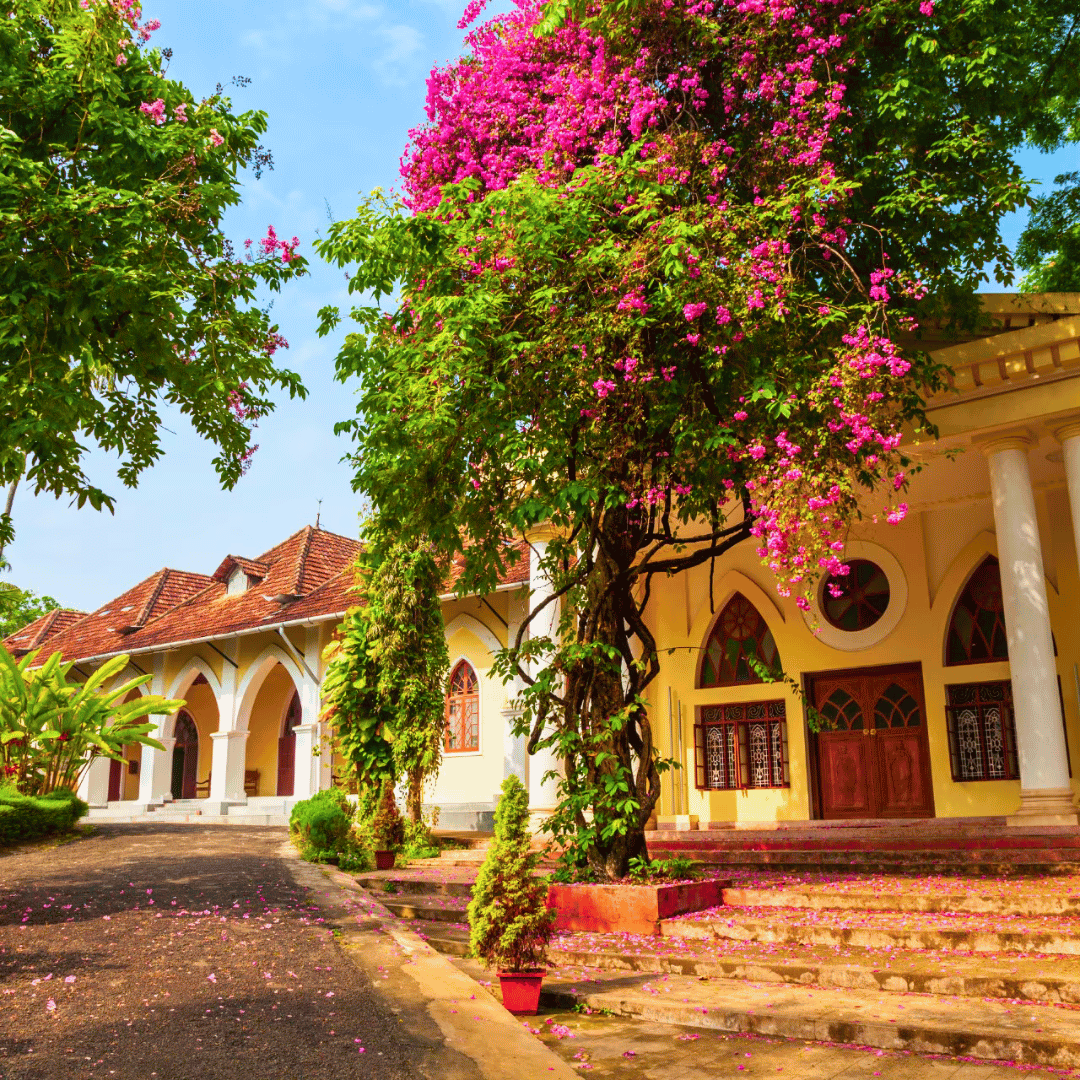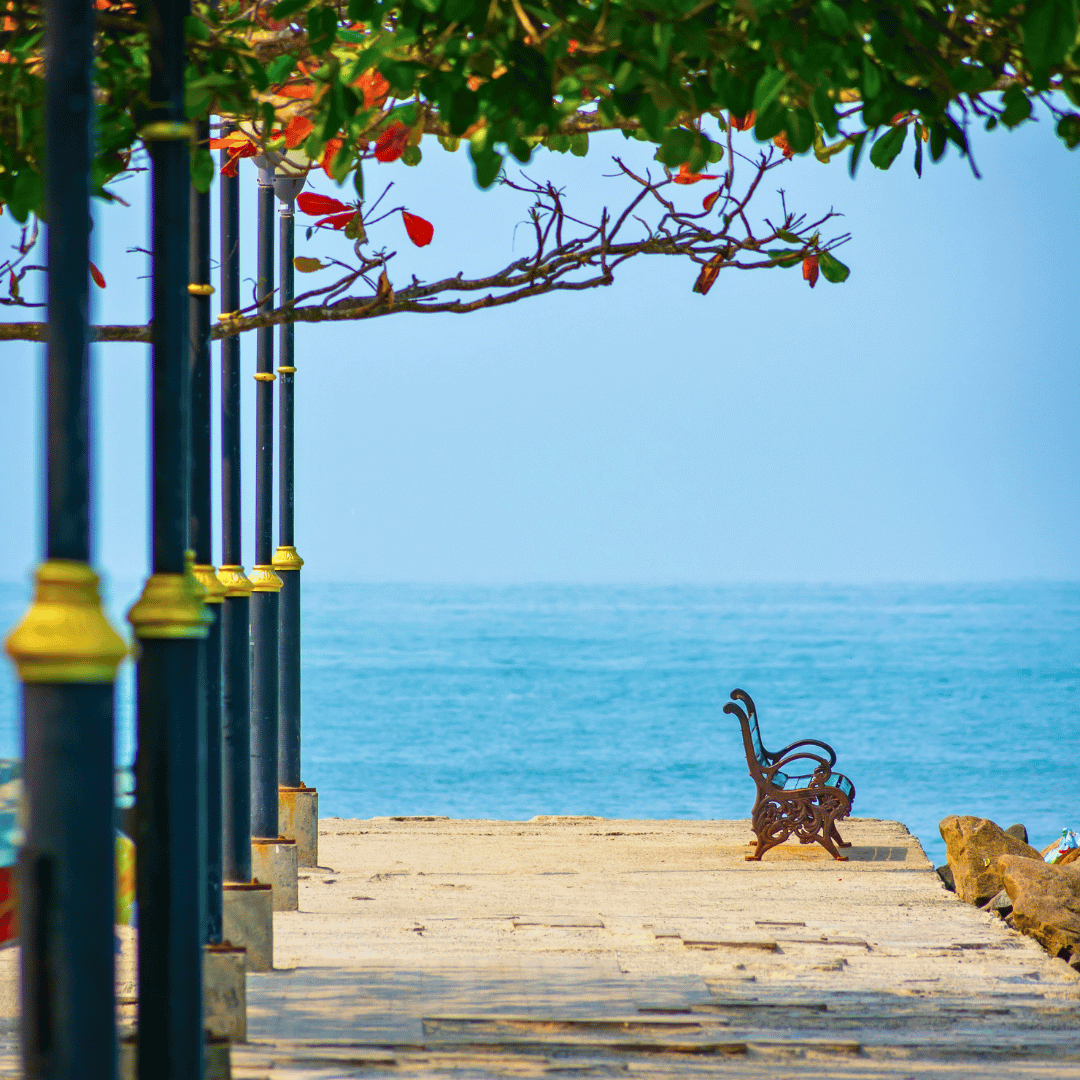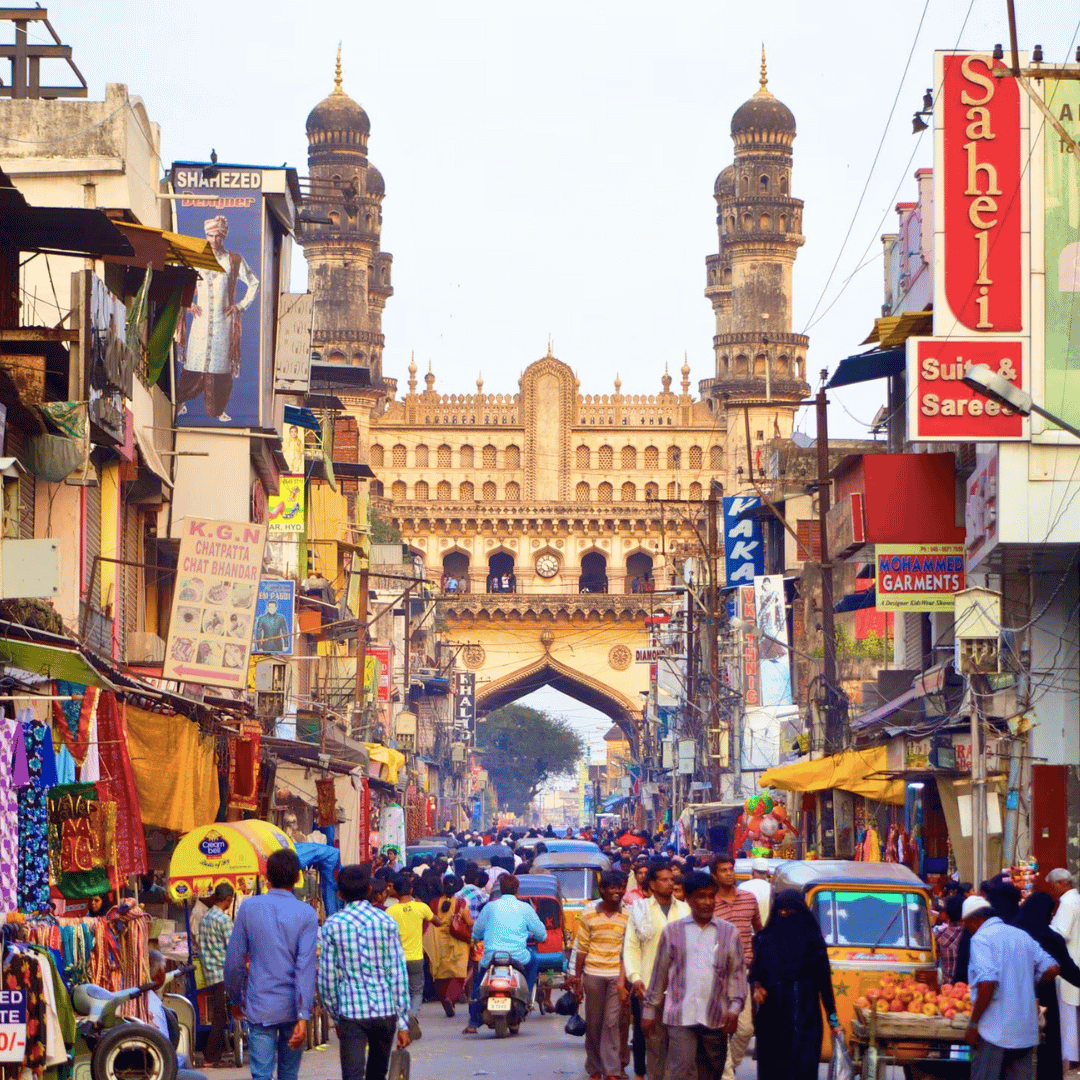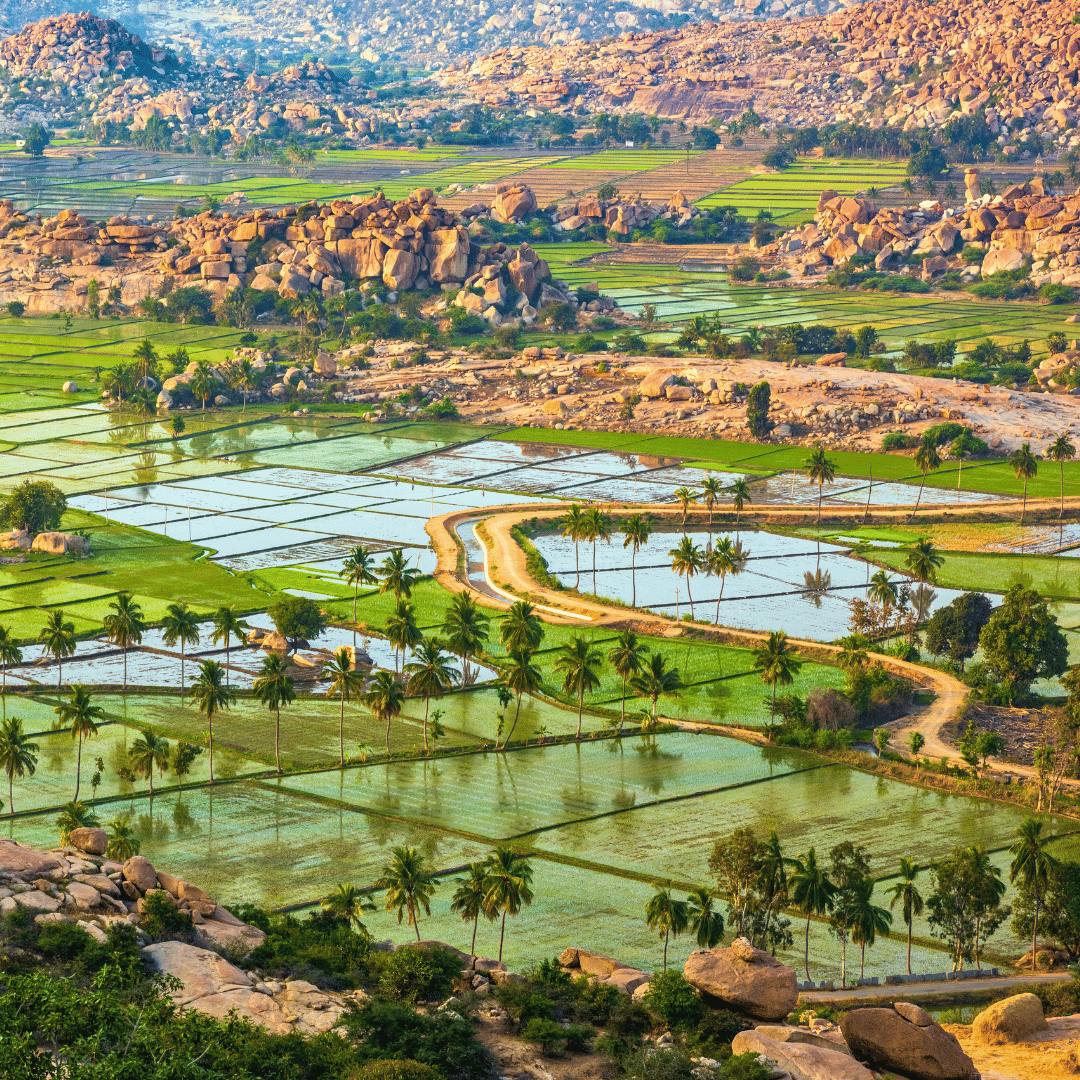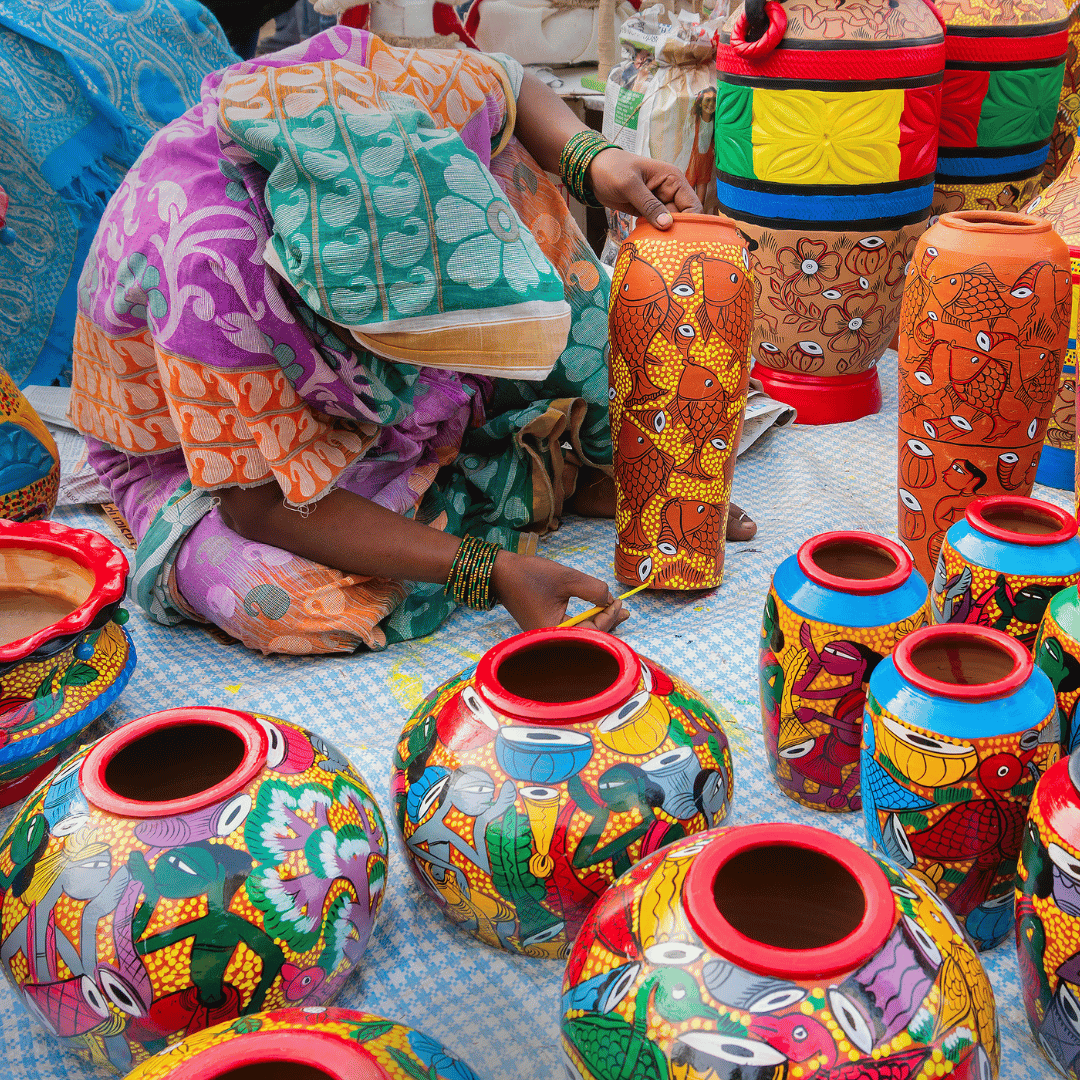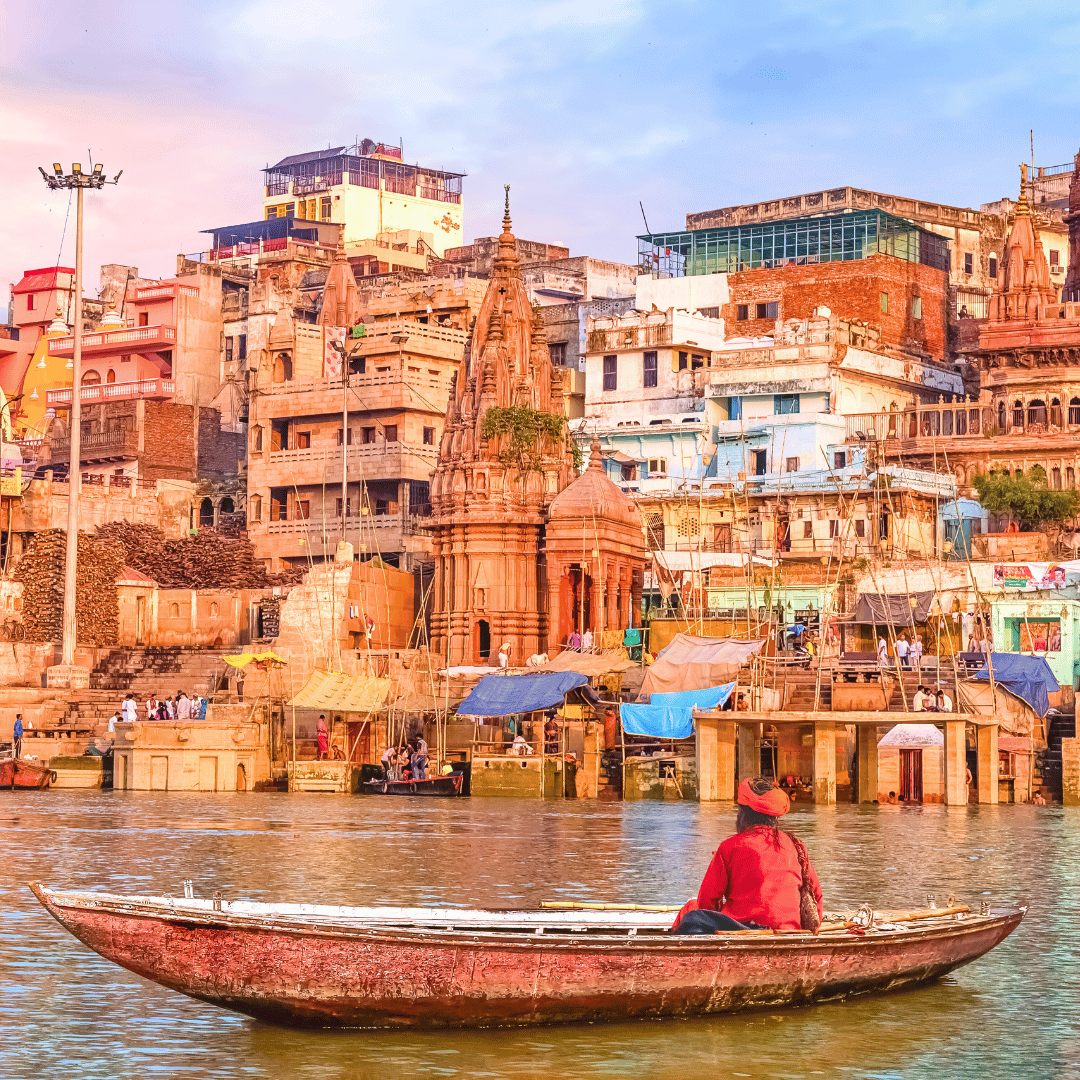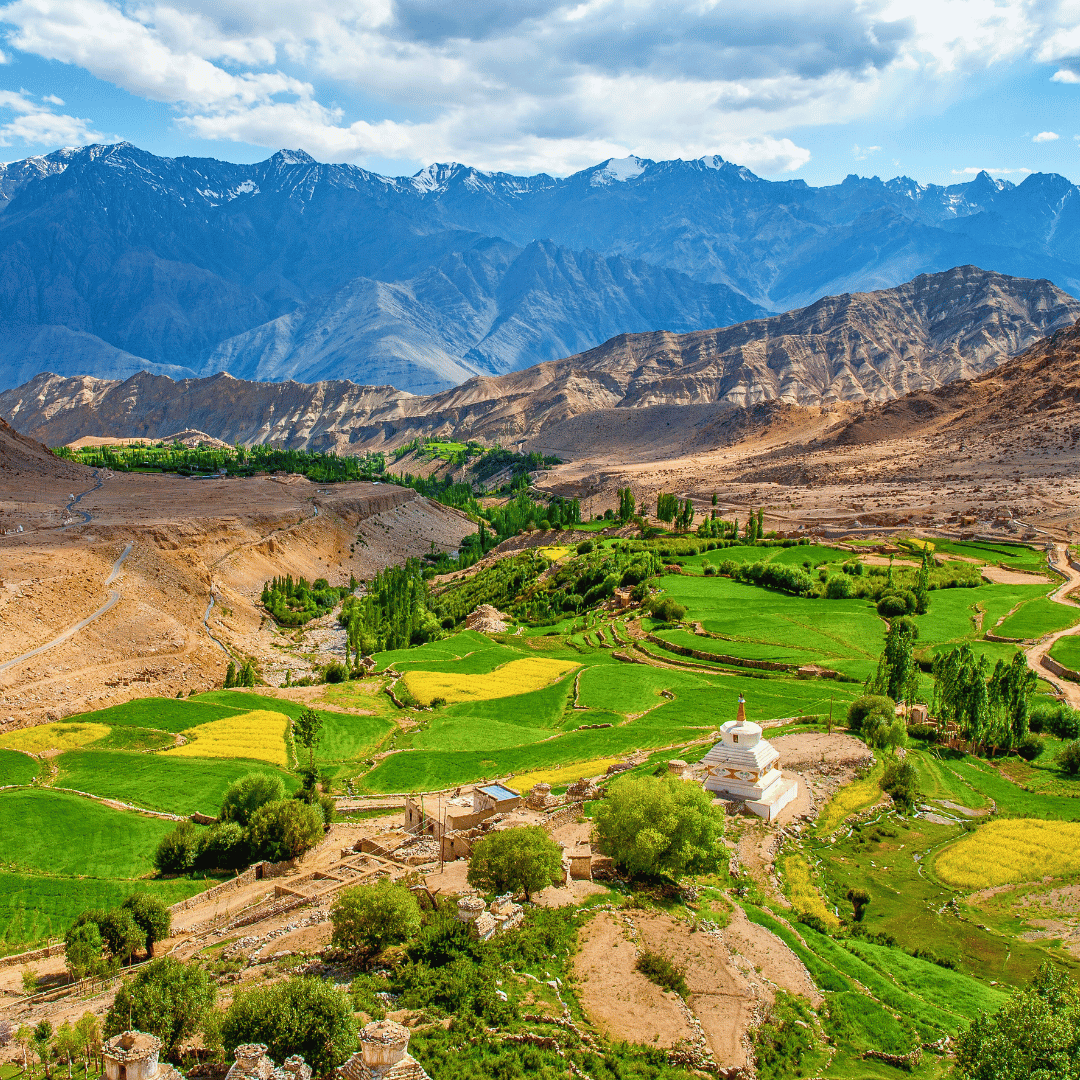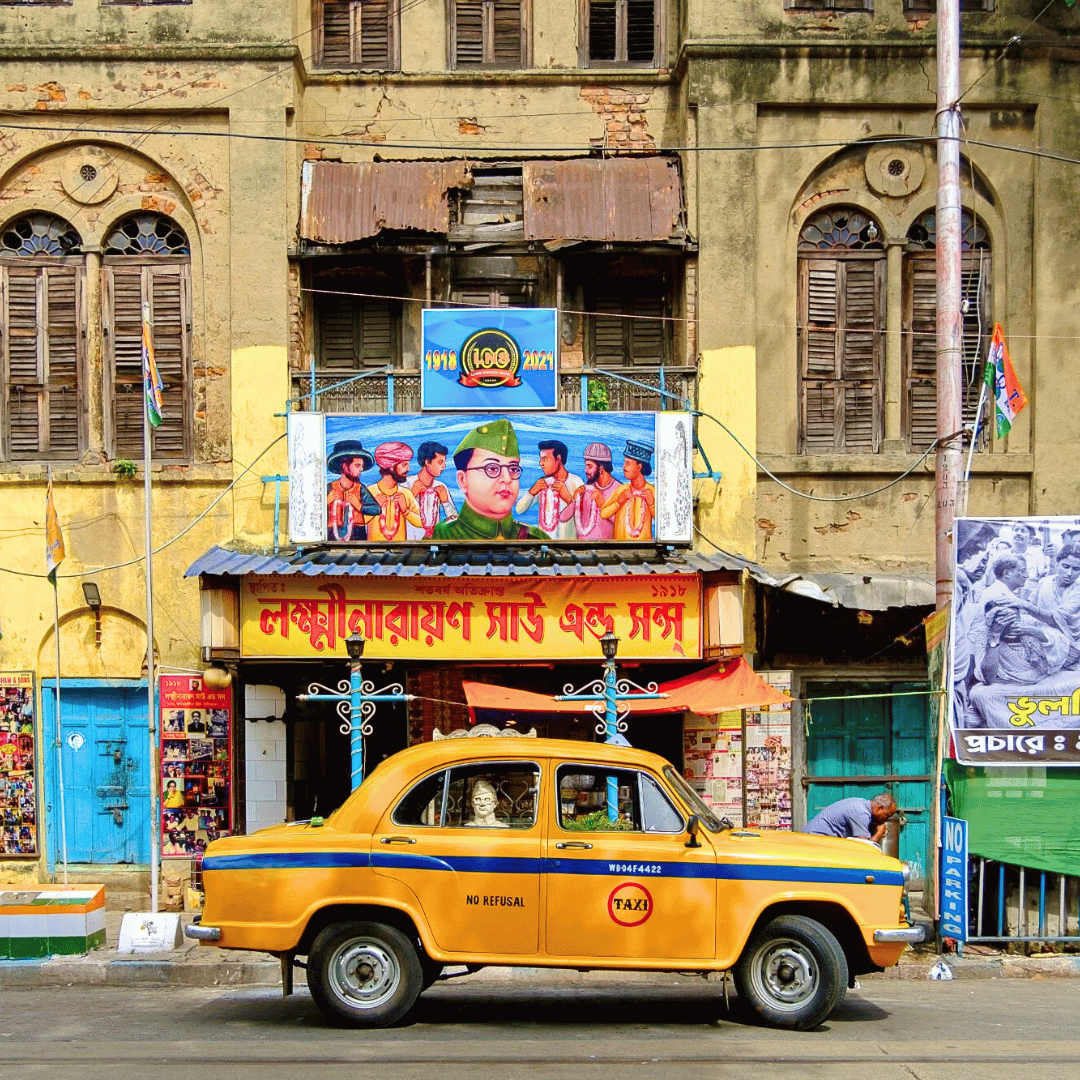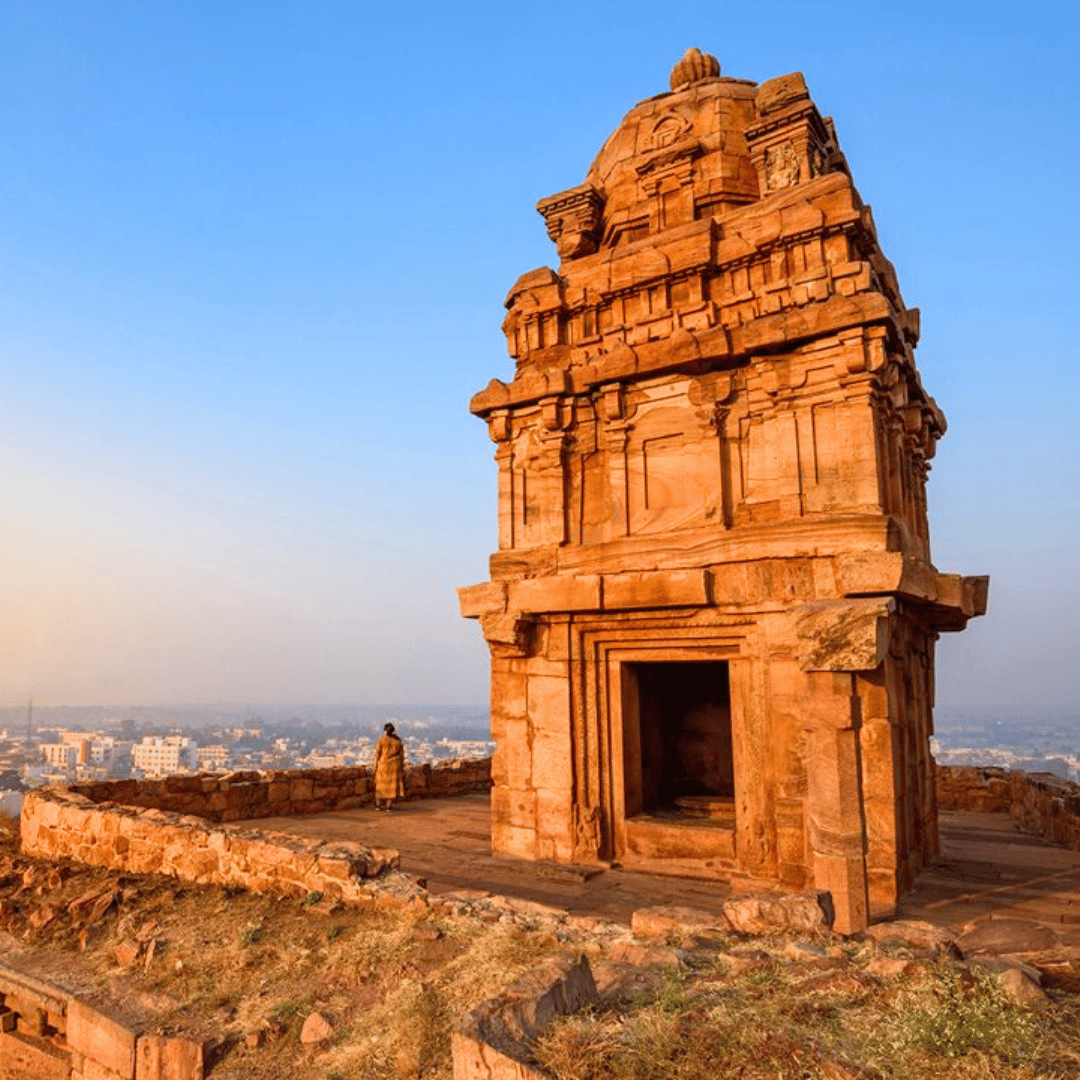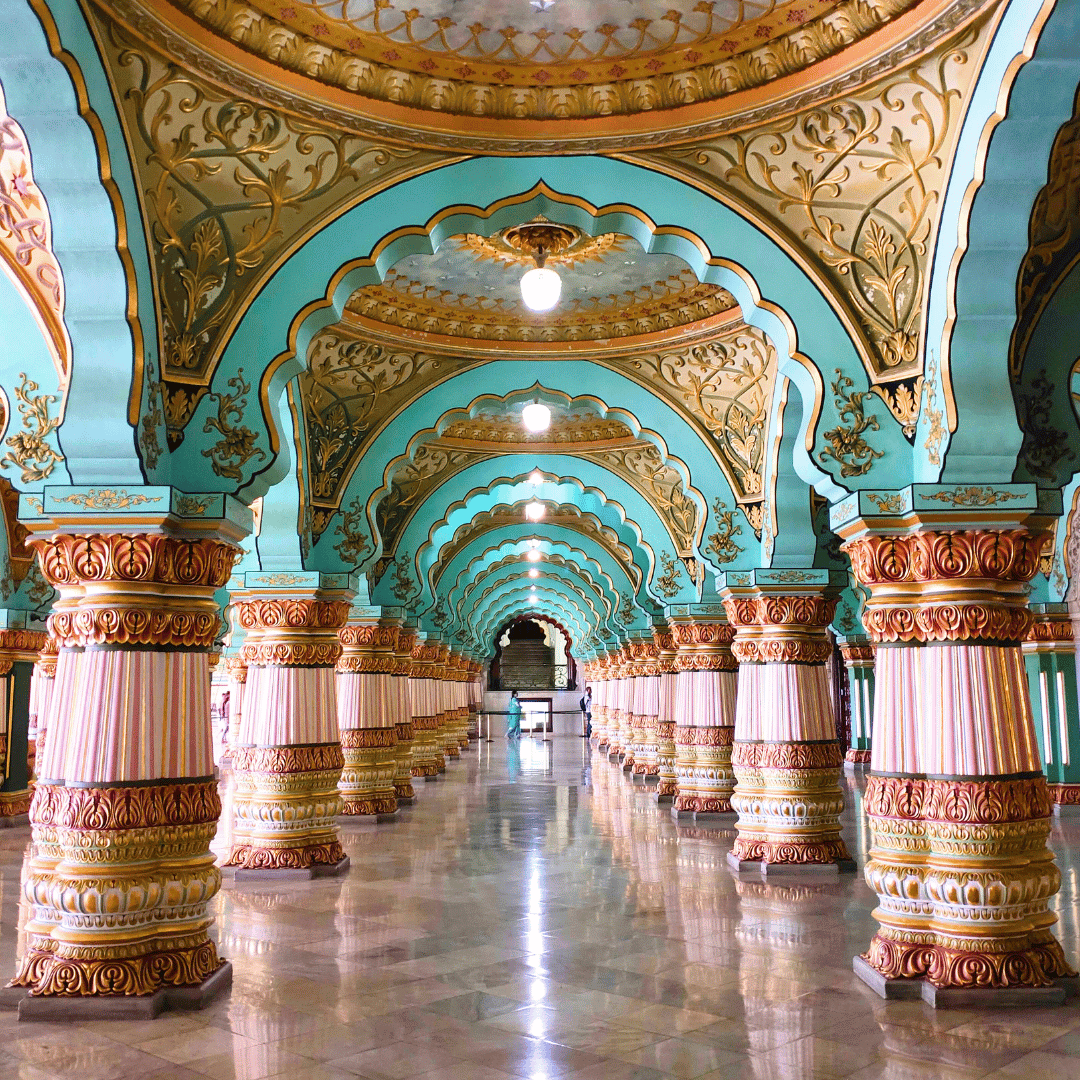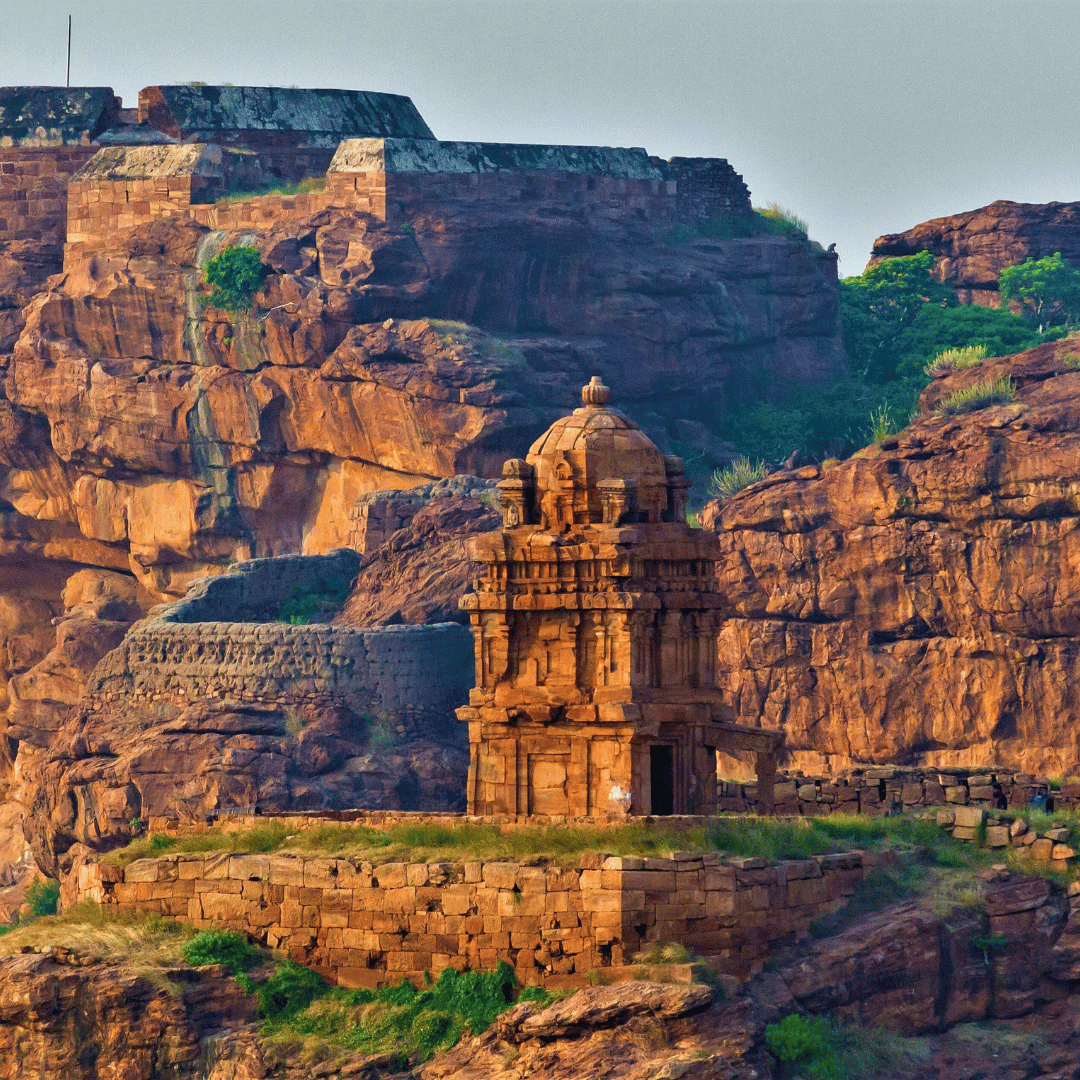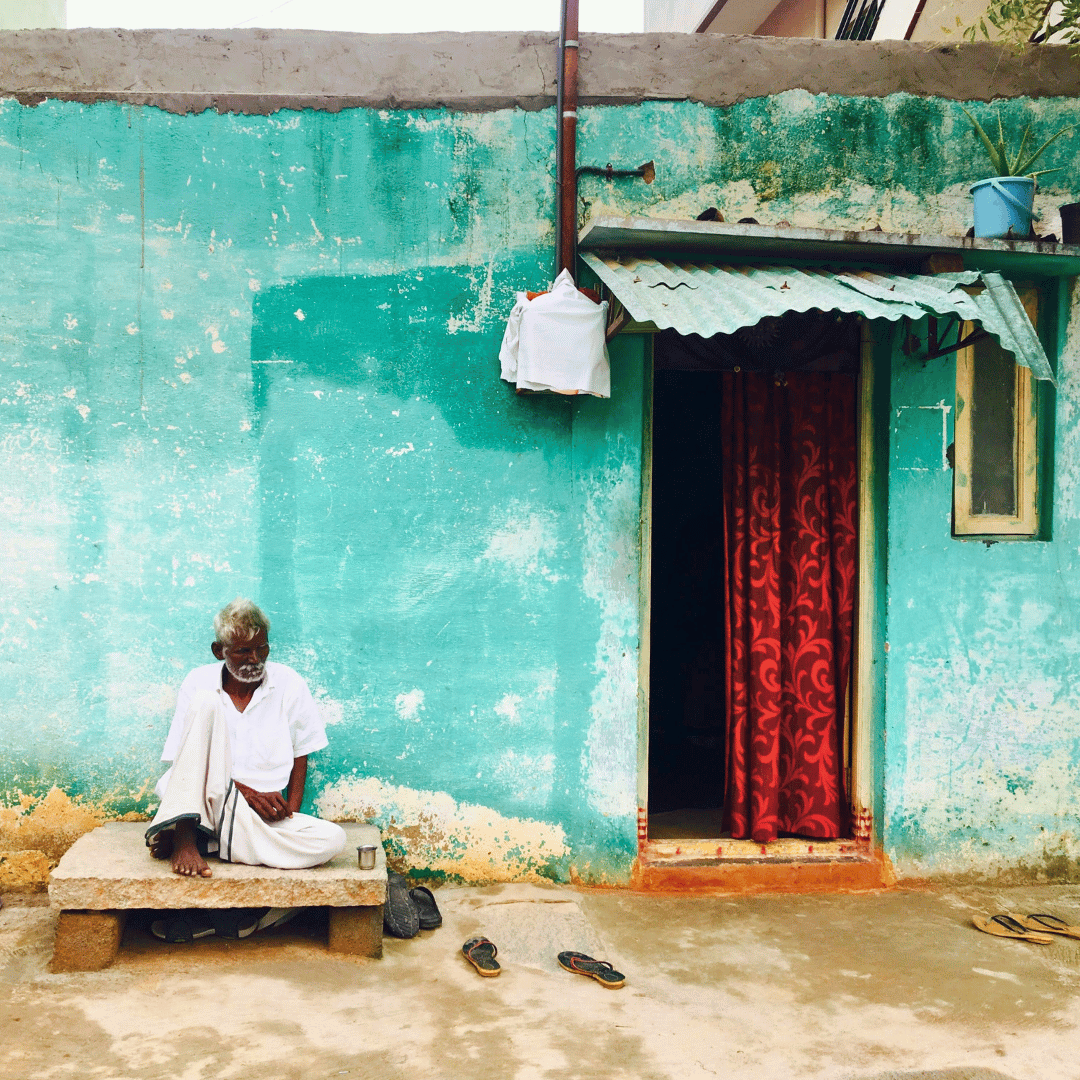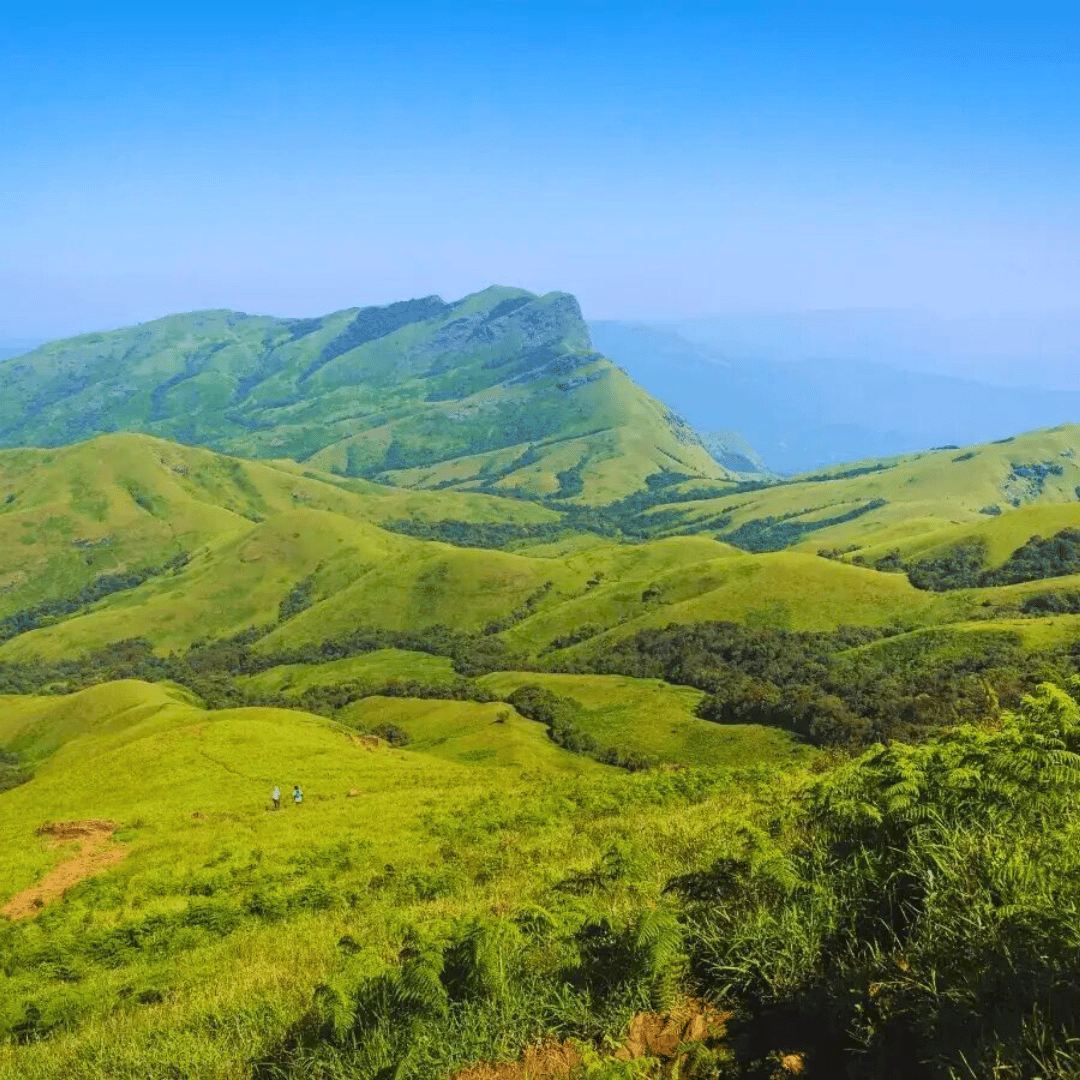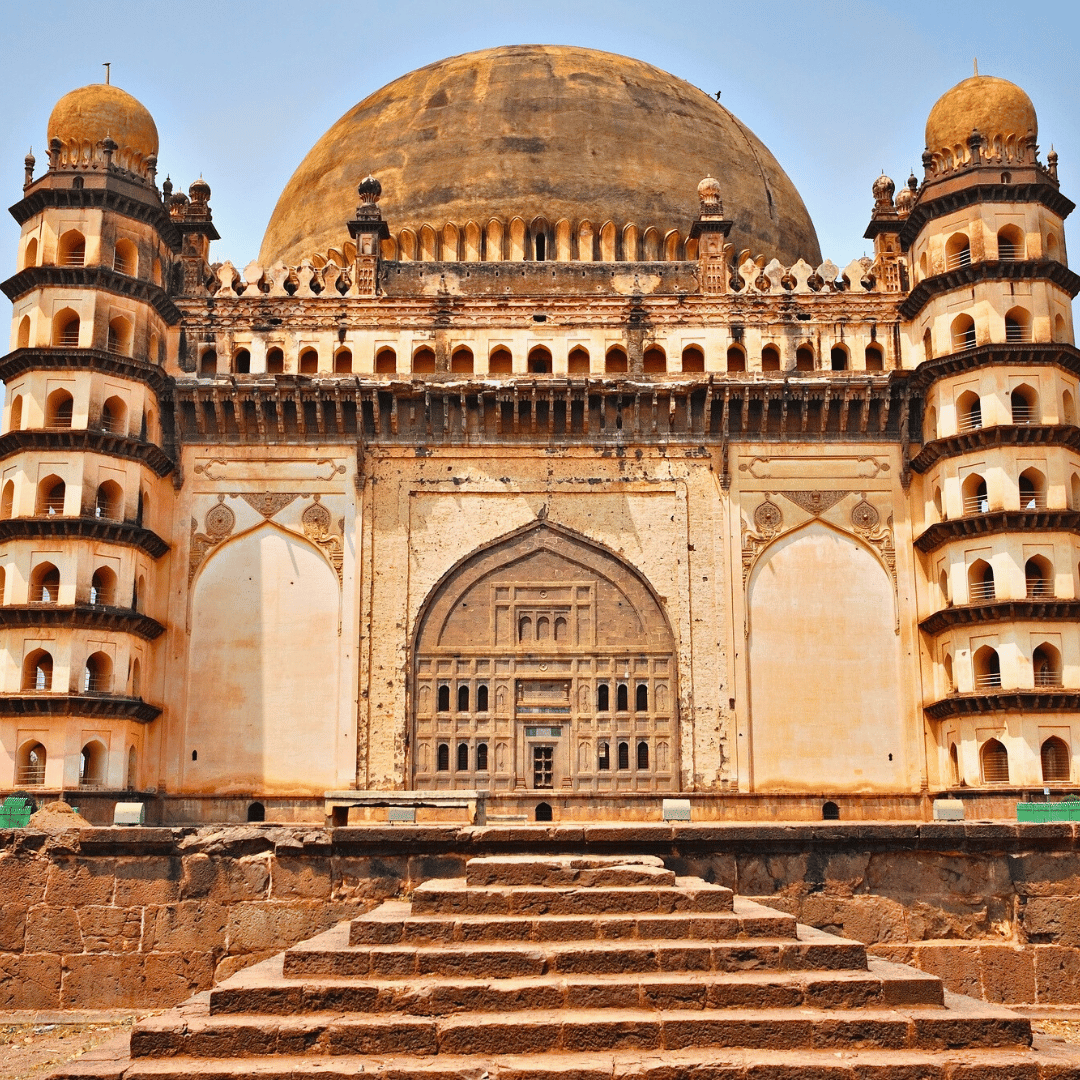Two Week South India Tour Itinerary
-
Arrive in Chennai, the capital of Tamil Nadu, and transfer to your accommodation. One of India’s major cultural and economic centres, Chennai offers a fascinating introduction to the South India. Once you've settled in, the remainder of the day is yours to spend at leisure, allowing you to explore as much or as little as you like.
You might choose to take a walk along Marina Beach - one of the longest urban beaches in the world - or visit the lively neighbourhood of Mylapore, home to the colourful Kapaleeshwarar Temple, a fine example of Dravidian architecture. For a look into the region’s artistic and historical roots, the Government Museum houses an impressive collection of South Indian bronzes and archaeological finds, while the Kalakshetra Foundation showcases traditional dance, music and crafts.
Those interested in Chennai’s colonial past can explore Fort St George, established by the British East India Company in the 17th century, or wander through the historic Georgetown district with its busy markets and old churches. Food lovers might enjoy sampling Tamil cuisine at a local restaurant or trying a classic filter coffee at one of the city’s traditional cafés. Whether you’re after a relaxed start or a bit of gentle exploring, Chennai offers plenty of options to ease into your adventure across South India.
-
Chennai, the capital of Tamil Nadu and India’s fourth-largest city, presents a vivid blend of ancient heritage and modern development. Once a strategic trading post for the British East India Company, the city has grown into a thriving metropolis while retaining strong ties to its past. Its landscape is shaped by centuries of cultural evolution - from ancient Dravidian temples and colonial churches to contemporary arts venues and urban sprawl. Stretching along the Coromandel Coast, Chennai is also known for its long stretch of golden sands at Marina Beach, where locals gather at sunrise and sunset, and for its deep-rooted traditions in Carnatic music and classical Bharatanatyam dance.
This morning, take a guided tour of the city to discover its most significant sites. Visit the Kapaleeshwarar Temple in Mylapore, a fine example of Dravidian temple architecture, known for its intricately carved gopuram (tower) and daily rituals. Continue to Fort St George, the first stronghold of the British in India, which now houses the Tamil Nadu Legislative Assembly and a small museum with artefacts from the colonial era. Explore the Government Museum in Egmore, which holds an outstanding collection of South Indian bronzes, sculptures and decorative arts, or take time to wander through the vibrant markets and historical laneways of Georgetown.
You may also stop at San Thome Cathedral, believed to be built over the tomb of St Thomas the Apostle, and admire the blend of Gothic architecture and religious significance. For those curious about the city’s artistic life, a visit to Kalakshetra - a centre dedicated to traditional dance, music and crafts - offers insight into the cultural heartbeat of the region.
In the afternoon, depart by road for Pondicherry, a former French colonial outpost about three hours’ drive to the south. As the landscape shifts from urban sprawl to the greener, more rural stretches of Tamil Nadu, you’ll pass rice paddies, coconut groves and villages along the way. Upon arrival in Pondicherry, you'll notice a distinct change in atmosphere, with tree-lined boulevards, pastel-hued buildings, and a coastal setting that reflects its unique French-Tamil heritage.
-
Begin your morning with a leisurely walk through the broad, tree-lined boulevards of Pondicherry’s French Quarter - a quiet and distinctive part of the town where the legacy of French colonial rule is still clearly visible. The streets here are flanked by restored heritage villas with shuttered windows and shaded verandahs, many of which now house guesthouses, cafés, and galleries. Bougainvillea spills over garden walls in vibrant shades of pink and white, and the signage - still in French - adds to the character of this coastal town.
Take time to appreciate the gentle pace of life in this part of Pondicherry, where the layout reflects the town’s colonial past and contrasts with the busier Tamil quarters nearby. Stop in at the Sri Aurobindo Ashram, a spiritual community founded in 1926 by philosopher and yogi Sri Aurobindo and his collaborator known as The Mother. Located in the heart of the French Quarter, the ashram draws visitors from around the world seeking peace, reflection or simply an understanding of its teachings, which combine spiritual practice with everyday life. While not a typical tourist attraction, the ashram offers a calm and contemplative space, with a central courtyard where followers and visitors often sit quietly by the flower-covered shrine.
As you continue exploring, you might also notice the quiet influence of Auroville - an experimental international township established nearby - on the region’s culture and design. The morning’s stroll offers not only a look into Pondicherry’s unique fusion of French and Tamil influences but also a chance to take in its slower, more reflective pace before the day unfolds. In the afternoon, you may choose to take a half day trip to Auroville itself, relax at your hotel, or indulge in Pondicherry’s two greatest pleasures: eating and shopping.
-
Continue your journey today to Tanjore (also known as Thanjavur), once the thriving capital of the Chola Empire - one of South India’s most powerful and culturally influential dynasties. The Cholas ruled over much of southern India and beyond between the 9th and 13th centuries, leaving behind a remarkable legacy of temple architecture, sculpture, literature and bronze casting that still shapes Tamil culture today.
On arrival, settle into your accommodation before heading out in the afternoon for a guided tour of this historic city. The highlight of the visit is the Brihadishwara Temple, a UNESCO World Heritage-listed site and an outstanding example of Chola temple architecture. Built in the early 11th century by Raja Raja Chola I, the temple is dominated by a massive 60-metre tall granite tower (vimana), which rises above the sanctum and is capped by a single carved stone weighing around 80 tonnes. Despite being over a thousand years old, the temple remains a place of active worship and is one of the best-preserved examples of Tamil temple design.
As you explore the temple complex, take time to admire the detailed frescoes, intricate sculptures and long pillared corridors, all of which reflect the skill and artistic refinement of the Chola period. Beyond the temple, Tanjore is also known for its classical music, dance, and distinctive Tanjore paintings, which you may come across in local workshops or galleries. The city offers a rich insight into the artistic and architectural heights reached during one of South India’s most significant historical eras.
-
This morning’s drive takes you into the Chettinad region, a culturally rich area of Tamil Nadu known for its grand heritage mansions and distinctive local traditions. Chettinad was once home to the Chettiars, a prosperous community of merchants and financiers who amassed considerable wealth through trade and banking across South-East Asia during the 19th and early 20th centuries. Their success was reflected in the lavish homes they built - spacious residences adorned with Italian marble, Burmese teak, Belgian glass and intricate tilework imported from Europe and beyond.
Your accommodation for the next few nights is in one of these beautifully restored mansions, offering a unique opportunity to experience the architectural legacy and gracious lifestyle of a bygone era. The interiors often feature wide courtyards, colonnaded halls, and period furnishings that capture the refined tastes of the Chettiar community.
With a private vehicle and driver at your disposal, the coming days are yours to explore the surrounding area at your own pace. You might visit the town of Karaikudi, known for its antique shops and traditional crafts, or wander through lesser-known villages where you can see local artisans at work - weaving, tile-making or preparing Chettinad cuisine, famous for its bold use of spices and distinctive flavours. You may also have the chance to visit local temples, stepwells, and traditional markets, all of which offer insight into the everyday life and customs of this unique region. Whether you're interested in architecture, food, or simply soaking in the slower pace of rural Tamil Nadu, Chettinad provides a memorable and richly textured experience.
-
Enjoy a full day to explore the Chettinad region, with a private driver and vehicle at your disposal, allowing you the freedom to discover this culturally rich and architecturally distinctive part of Tamil Nadu at your own pace.
Beyond its grand mansions and famous cuisine, Chettinad offers plenty of opportunities for deeper exploration. You might start your day with a visit to one of the region’s many local temples, such as the impressive Sri Karpaga Vinayagar Temple in Pillayarpatti, dedicated to Lord Ganesha and carved into a cave more than a thousand years ago. The temple features ancient inscriptions and striking rock-cut architecture.
Consider exploring some of the smaller villages in the area, where you can observe traditional craftspeople at work, such as Athangudi, known for its handmade decorative floor tiles. Here, you can watch artisans skilfully create vibrant patterned tiles using age-old techniques, or even try making one yourself. Nearby, the village of Kanadukathan offers well-preserved heritage streets with photogenic facades, market stalls and quiet corners perfect for a stroll.
For those interested in local food culture, you could arrange a Chettinad cooking demonstration or meal with a local family to learn more about the use of regional spices, sun-dried ingredients and traditional cooking methods. Alternatively, a stop at a weekly market (depending on the day) can offer a glimpse into rural life, with stalls selling everything from fresh produce to brassware and textiles.
If you’re in the mood for a short day trip, consider visiting the nearby town of Sivaganga, known for its historic palace, or the Viralimalai bird sanctuary, home to the Indian peafowl and a peaceful spot for walking and birdwatching.
Whether you choose to focus on history, craft, cuisine or countryside, the flexibility of having your own vehicle and driver makes it easy to shape the day around your interests.
-
Depart this morning for the drive to Madurai, one of South India’s oldest and most historically significant cities. The journey from Chettinad takes around two to two and a half hours by road, passing through a landscape of rural villages, paddy fields and roadside shrines.
Madurai has served as a major centre of culture, learning and pilgrimage for over two millennia, its prominence anchored by the iconic Meenakshi Amman Temple. This vast temple complex, dedicated to Meenakshi (a form of Parvati) and her consort Sundareswarar (Shiva), is the heart of the city both spiritually and architecturally. With its towering gopurams (gateway towers) covered in colourful, detailed sculptures, and an interior filled with corridors, shrines and columned halls, the temple is an essential stop for anyone visiting Tamil Nadu.
Beyond the temple, Madurai reveals itself through a series of quieter, more understated experiences. Visit the 17th-century Thirumalai Nayakkar Palace, known for its blend of Dravidian and Islamic architectural styles, or take a walk through the lively flower and banana markets where locals trade in bulk for daily rituals and ceremonies. You might also visit Gandhi Memorial Museum, which presents a sobering but informative account of India’s independence movement and Gandhi’s role in it.
In the early evening, consider returning to the Meenakshi Temple to witness the daily closing ceremony, a ritual involving music, chanting and the symbolic procession of the deities. This timeless ceremony offers insight into the continuing spiritual importance of the temple and the rhythms of life in Madurai.
-
Start your day early with a walk through the narrow laneways of Madurai, where the city comes to life in a burst of colour, scent and sound. These bustling alleys are lined with stalls selling everything from fresh vegetables and seasonal fruit to sacks of spices and garlands of fragrant flowers bound for daily offerings at temples and homes. It’s a chance to witness the rhythm of local life - vendors calling out prices, customers bargaining, and people stopping for chai at street-side stalls.
From there, make your way to the famed Meenakshi Amman Temple, the spiritual heart of Madurai and one of the most important Hindu temples in India. Dedicated to Meenakshi, the ‘fish-eyed goddess’ and an avatar of Parvati, the temple is an extraordinary complex filled with shrines, vast pillared halls, colourful sculptures, and processions of worshippers. Its towering gopurams are covered in thousands of vividly painted deities and mythological figures, while inside, the temple remains a living place of devotion, full of chanting, bells, incense and ritual. Take time to explore the Hall of a Thousand Pillars, the sacred tank, and the quieter courtyards tucked within the sprawling compound.
After your visit, depart Madurai by road and begin the scenic drive to Thekkady, located in the Western Ghats in the neighbouring state of Kerala. The journey takes around four hours, winding through plains and gradually climbing into greener, cooler terrain dotted with spice plantations and forested hills. As you leave the temple city behind, the landscape shifts noticeably, offering a preview of the lush and fragrant environment that awaits.
-
Depart Thekkady this morning and travel onwards to Kalaketty Estate, a peaceful rural retreat nestled in the foothills of the Western Ghats. The drive takes you through rolling hills, quiet backroads and patchworks of cardamom, pepper and rubber plantations - a scenic transition from the bustle of Thekkady to the slower rhythm of countryside life. On arrival, settle into your accommodation, typically set in a restored heritage bungalow surrounded by trees and birdsong.
You’ll have two days here to explore the surrounding area at your own pace. The estate and its nearby villages offer a relaxed yet engaging window into rural life in Kerala. A range of activities can be arranged through your hosts, including guided cycling tours through local villages where you can interact with residents and observe daily routines. Escorted walks through rubber and spice plantations reveal the cultivation and harvesting processes of crops that have long shaped the region’s economy and way of life.
For a taste of tradition, you might choose to take a slow-paced bullock cart ride - still used in parts of rural India - or join a local guide for a visit to small temples, homes, and markets tucked away from the main roads. If you prefer to unwind, the estate often offers access to Ayurvedic spa treatments based on centuries-old healing practices that use local herbs and oils.
-
Enjoy a full day at leisure at Kalaketty Estate, with the option to either relax in the peaceful surrounds of the property or venture further afield to explore more of what this part of Kerala has to offer. The estate itself provides a restful setting - perfect for reading on the verandah, birdwatching in the early morning light, or simply enjoying the sounds of nature and the cool breeze drifting through the hills.
For those interested in exploring the wider region, several rewarding day trips are within reach. Wildlife enthusiasts may consider a visit to the nearby Periyar Tiger Reserve, located around 1.5 hours by road. Aside from its namesake, the reserve is also home to a variety of wildlife including elephants, sambar deer, Indian bison, and an impressive range of birdlife. Boat safaris on Periyar Lake offer the chance to spot animals coming down to the water’s edge, especially in the early morning or late afternoon.
Alternatively, the lesser-visited Gavi Eco-Tourism area, also part of the Periyar landscape, offers a more off-the-beaten-track experience. Guided treks through forest trails and jeep safaris are available, with good chances of seeing wildlife in a less crowded setting. For those who enjoy walking, the area is also known for its peaceful trails through thick forest and along scenic ridgelines.
Closer to Kalaketty, short drives can take you to viewpoints overlooking the valleys of the Western Ghats, or to small tea gardens where you can learn about the growing and processing of South India’s distinctive teas.
-
Depart this morning for the drive to Alleppey, a journey of around four to five hours that winds through small towns, rice fields, coconut groves and canals as you descend from the hills into the lush lowlands of Kerala. Upon arrival at the jetty, you’ll board your houseboat - your floating home for the night. Traditionally known as kettuvallams, these houseboats were once used to transport rice and spices through the backwaters. Today, they’ve been converted into comfortably furnished, air-conditioned vessels, complete with ensuite bedrooms, dining areas and shaded viewing decks.
Settle in and begin your leisurely cruise through the famed Kerala backwaters, a vast network of canals, lagoons and lakes that wind through some of the state’s most fertile and densely populated areas. At the heart of this watery world is Vembanad Lake - the largest in Kerala and one of the biggest in India. As you glide across its calm waters, life on the banks gently unfolds before you: children walking to school along narrow paths, women washing clothes at the water’s edge, fishermen casting nets from slender wooden canoes, and farmers tending to flooded paddy fields just metres from the canal.
One of the best ways to absorb the rhythm of the backwaters is simply to sit on the deck and watch the scenes drift by. The houseboat stops periodically at local villages or small markets, offering the chance to step ashore and explore if you wish. Meals are freshly prepared on board by the crew, featuring local ingredients and Keralan flavours. As evening falls and the sun sinks behind the coconut palms, the boat anchors for the night, allowing you to enjoy the stillness of the water and the sounds of rural life settling in for the evening.
-
After a relaxed breakfast on board, return to the jetty and disembark from your houseboat. From here, continue by road to Cochin (also known as Kochi), a journey of roughly 1.5 to 2 hours depending on traffic. As you approach the city, you’ll notice the blend of influences that make Cochin one of South India’s most historically layered and culturally diverse destinations.
On arrival, make your way to Fort Cochin, the city's historic quarter and an ideal area to explore on foot. With minimal traffic and shaded, tree-lined streets, it’s a pleasant place to wander at your own pace. The area is best known for its iconic Chinese fishing nets - large cantilevered structures introduced centuries ago by traders from the Far East. Watching the nets being raised and lowered at sunset is a quiet but memorable experience.
The streets around the fishing nets are dotted with independent shops, galleries and inviting cafés, many housed in old colonial-era buildings. You can browse everything from handmade crafts and textiles to locally sourced spices. Just a short auto-rickshaw ride away is the area known as Jew Town, once home to a thriving Jewish community. It’s now a lively stretch filled with antique dealers, spice shops and atmospheric restaurants, many offering views over the water or into the narrow, bustling lanes.
Cochin’s charm lies in its rich and visible history - this is one of the few places where you can encounter a Jewish synagogue, Portuguese churches, Dutch colonial buildings, mosques, Hindu temples and Chinese fishing nets all in a single afternoon. Highlights might include the Paradesi Synagogue with its hand-painted Chinese tiles, the 16th-century St Francis Church where Vasco da Gama was once buried, the Dutch Palace (Mattancherry Palace) with its murals and wooden architecture, and local spice markets filled with the scent of cardamom, pepper and cinnamon.
-
This morning, take a guided tour of Cochin, beginning with a visit to the Mattancherry Palace - often referred to as the Dutch Palace - originally built by the Portuguese in the 16th century and later renovated by the Dutch. While the exterior is relatively understated, the interior features detailed wooden ceilings and a remarkable series of murals depicting scenes from the Ramayana and other Hindu epics.
Continue on to the Paradesi Synagogue, the oldest active synagogue in the Commonwealth, dating back to 1568. Located in the heart of Jew Town, the synagogue is known for its hand-painted Chinese porcelain floor tiles, Belgian glass chandeliers, and historical artefacts that reflect the once-thriving Jewish community of Cochin. From here, make your way to St Francis Church, one of the oldest European churches in India. Originally built by the Portuguese in the early 1500s, it is notable for once housing the remains of explorer Vasco da Gama, whose tombstone still remains inside the church.
Round out the morning with a walk along the waterfront to see Cochin’s famous Chinese fishing nets - large, cantilevered structures that are lowered into the sea using a system of weights and pulleys. Still operated by hand, they offer a glimpse into centuries-old fishing techniques brought to the region by traders from China.
Depending on your flight time, you might like to enjoy one last stroll through the quiet streets of Fort Cochin, stopping for a final coffee or to browse the local shops and galleries. Later, you’ll be transferred to the airport for your onward journey, bringing your time in South India to a close.
The India Unbound Difference
At India Unbound, we’ve spent twenty years on the ground in India, learning all about its intricacies, landscapes and cultures. We use this first-hand knowledge to carefully curate travel itineraries for our guests, and are proud to be a reputable private touring specialist. In addition, our team of local partners offer guarantees of punctuality, quality and service. All of our India private tour itineraries include all accommodation mentioned, daily breakfasts and other meals as specified, all transfers, touring and sightseeing by air-conditioned Toyota Innova or similar vehicle, and internal flights as outlined in the itinerary. Private activities and sightseeing with English-speaking local guides are included, along with entrance fees, drinking water in the vehicle, and all vehicle-related charges such as tolls, parking fees, and taxes. The cost does not include visas or international flights, personal expenses such as drinks and laundry, meals and activities not specifically listed as included, or camera fees, which are rarely applicable. Prices are listed in Australian dollars and are based on per person, twin share. Please note that these may fluctuate depending on the time of year you’re looking to travel, and the type of accommodation you prefer.

